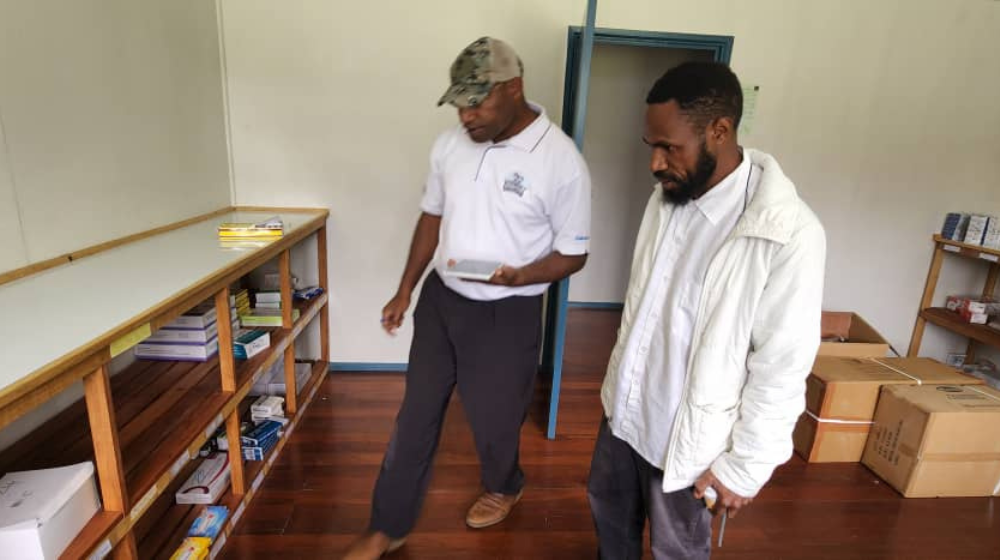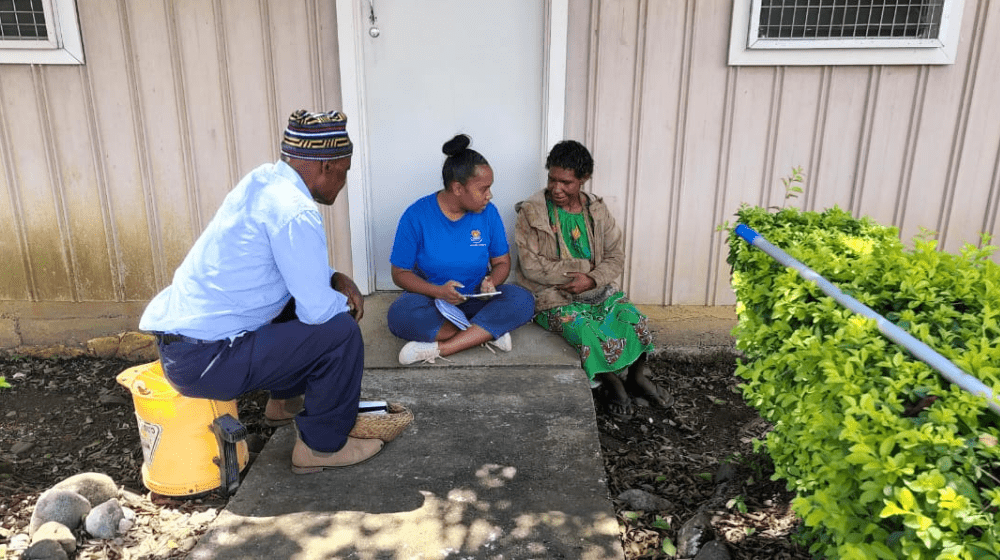UNFPA has completed a detailed survey of contraceptives and maternal health medicines in health facilities in the Highlands Region in the first step of a national assessment of the availability and accessibility of essential sexual and reproductive health medicines in Papua New Guinea. The survey is being rolled out nationally through July.
“Helping commodities get to the last person is very important,” said UNFPA's Debbie Kupesan, “Ensuring availability and easy accessibility to these commodities can prove to be lifesaving and this can improve young people’s livelihoods in their communities, they can fulfill their potential.”
This survey is being conducted in collaboration with the Medical Supplies Procurement and Distribution Branch (MSPDB) and Population and Family Health Services Branch (PFHSB) of the National Department of Health (NDoH), with support from the Australian Government and the global ‘UNFPA Supplies’ programme. A total of 150 health facilities will be surveyed, approximately one in every five facilities in the country. At each location, survey enumerators will speak with both staff and patients to understand the experiences behind the numbers.
The facilities being surveyed include different levels of care, such as aid posts, district health clinics, and provincial hospitals. Information collected from respondents includes stock levels of essential medicines for safe pregnancy and delivery, such as oxytocin and magnesium sulfate, and cold storage capacity for medicines, such as fridges.

Importantly, the survey considers staffing, looking at who is available to manage stock levels and to ensure essential medicines are ordered at appropriate intervals and in sufficient quantities to prevent shortages.
Speaking with patients is an opportunity to review the information women and men are given when seeking contraception or reproductive health advice. These responses will inform strategies to improve patient and provider communication, giving patients both positive experiences with healthcare providers and better health outcomes.
This survey is now being completed in all provinces of Papua New Guinea. The results of the Health Facility Survey will be available after the survey is completed in all identified facilities.
Contraception and Maternal Health Medicines in Papua New Guinea
UNFPA works with the National Department of Health (NDoH) to address the unmet need for family planning and reduce maternal deaths. Through support to midwifery training and equipment, logistics of procurement and distribution of commodities, and sexual and reproductive health advocacy, UNFPA’s partnership with NDoH focuses on strengthening local expertise in delivering improved health services for women and girls in Papua New Guinea.


